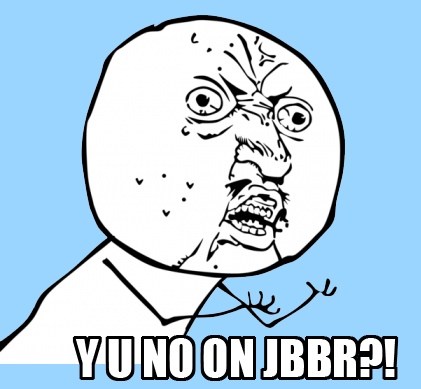Don’t censor the Internet!
Sen. Harry Reid
Majority Leader
United States Senate
522 Hart Senate Office Bldg
Washington, DC 20510
Dear Majority Leader Harry Reid,
As human rights and press freedom advocates, we write to express our deep concern about S. 968, the PROTECT IP Act (PIPA), and the threat it poses to international human rights. Like H.R. 3261, the Stop Online Piracy Act (SOPA), PIPA requires the use of internet censorship tools, undermines the global nature of the internet, and threatens free speech online. PIPA introduces a deeply concerning degree of legal uncertainty into the internet economy, particularly for users and businesses internationally. The United States has long been a global leader in support of freedom of speech online, and we urge the Senate not to tarnish that reputation by passing PIPA.
Today, some of the world’s most repressive countries, like China, Iran, Yemen, Saudi Arabia, and Syria use DNS filtering as a means to silence their citizens. As over 80 human rights organizations recently wrote in a letter opposing SOPA, “institutionalizing the use of internet censorship tools to enforce domestic law in the United States… creates a paradox that undermines its moral authority to criticize repressive regimes.”[1] In fact, PIPA would send an unequivocal message to other nations that the use of these tools is not only acceptable, but encouraged.
DNS filtering is a blunt form of censorship that is ineffective at achieving its stated goal, while causing collateral damage to online communities on a massive scale. But while DNS filtering is trivial for users to circumvent, this technology would fundamentally undermine the integrity of the global internet, making users more vulnerable to cybersecurity attacks and identity fraud. Additionally, any legislation that mandates filtering of websites is prone to unintended consequences, such as overblocking. For example, in early 2011, when the Immigration and Customs Enforcement agency seized the domain mooo.com, it accidentally removed the web addresses of 84,000 (almost exclusively legal) connected domain names.[2] Moreover, once the technical infrastructure enabling censorship is in place, it allows future governments (and private actors) to block virtually any type of content on the web, making the provisions of this bill prone to mission creep.
The attempts at due process provisions in this bill do not respect the global nature of the internet. The network effects of the internet are realized when users and innovators are able to connect around the globe. However, creating a mechanism that requires a representative of a website to make a court appearance in the U.S. in order to defend themselves against an allegation of infringement would disproportionately impact smaller online communities and start-ups based abroad that do not have the capacity to address concerns in the United States. These websites would risk losing access to advertising services, payment providers, search engine listings, and their domain name. Together, these pieces of the bill would drive international innovators away from depending on U.S. services as a hedge against legal threats, while missing what should be the target of this legislation: preventing large-scale commercial infringement.
PIPA further creates a double jurisdiction problem, whereby non-U.S.-based sites must determine whether a site is legal in both the country it is operating in and the United States. This raises serious concerns about the scope of the bill, as foreign websites falling under PIPA’s definition of infringement may be perfectly legal in other jurisdictions. For example, the domain of a Spanish site, rojadirecta.org, was seized in early 2011 by U.S. authorities without adequate due process, notification to the site’s owners, or an option to defend themselves, despite having been declared legal by two Spanish courts.[3]
The definition of “information location service” is overly broad and would have a chilling effect on online speech. PIPA would make nearly every U.S.-based actor on the internet, including not only blogs, chat rooms, and social networks but users as well, potentially subject to enforcement orders of the bill. Additionally, the requirement that these service providers act “as expeditiously as possible to remove or disable access” to an allegedly infringing website imposes an unprecedented burden on any service that contains links, incentivizing the screening and removal of content in order to avoid being caught up in legal proceedings. Further, even if an accused website is later found to be innocent, links to that website could have effectively disappeared from the web, having been permanently removed when the court notice was served.
PIPA is also vague with respect to how links would be defined, including if all links associated with a domain or subdomain would be required to be blocked and if this would apply to future attempts by users to post content. This provision could potentially be interpreted in a way that would force services that allow users to post links to proactively monitor and censor the activities of their users, dramatically altering the role of these platforms in promoting free speech and setting a dangerous precedent for other countries.
We understand the pressure that lawmakers face in passing copyright enforcement legislation, and agree that protecting the rights of creators is an important goal. However, enforcement should not come at the expense of free speech or due process. This bill is fundamentally flawed due to its wide range of restrictive and potentially repressive measures. Even if individual elements of the proposal, such as DNS filtering are modified, postponed or amended, the legislation as a whole represents a precedent that is a real danger for human rights on the internet. We must remain conscious of the fact that the internet is a key enabler of human rights and innovation, and decisions over its governance should not be made hastily and without full consideration of collateral consequences.
We strongly urge the Senate to stand for human rights, defend the open internet, and reject the PROTECT IP Act.
Sincerely, Lx



